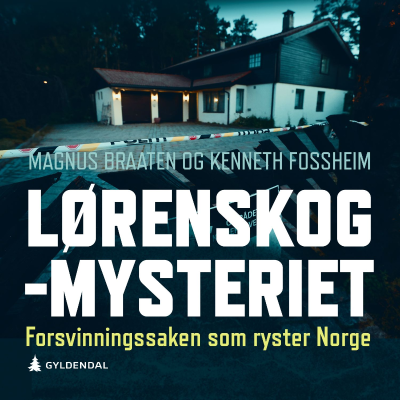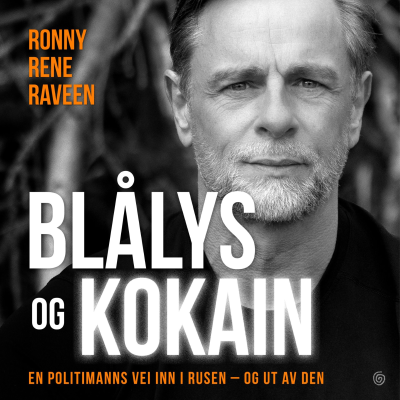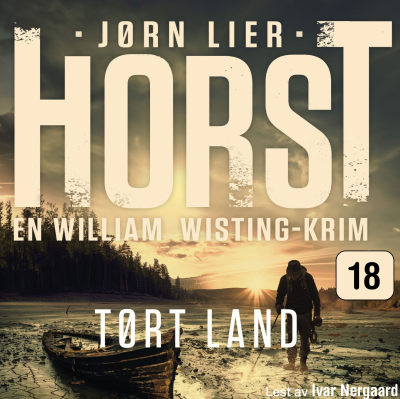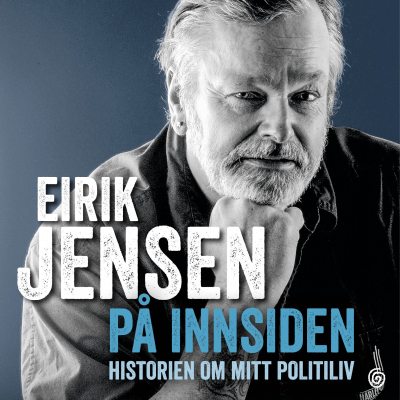
Statecraft
engelsk
Dokumentar
Prøv gratis i 14 dager
99 kr / Måned etter prøveperioden.Avslutt når som helst.
- 20 timer lydbøker i måneden
- Eksklusive podkaster
- Gratis podkaster
Les mer Statecraft
Statecraft is an interview series about how policy actually gets made. www.statecraft.pub
Alle episoder
69 EpisoderWhat’s Wrong with Nonprofits?
Today’s guest is Greg Berman, and we talk about nonprofits — Non-Governmental Organizations, or NGOs. Greg’s got a new book out called The Nonprofit Crisis: Leadership Through the Culture Wars [https://www.amazon.com/Nonprofit-Crisis-Leadership-Through-Culture/dp/0197786308/ref=books_amazonstores_desktop_mfs_aufs_ap_sc_dsk_0?_encoding=UTF8&pd_rd_w=devAw&content-id=amzn1.sym.6d92b4c0-97d6-4063-b66e-20890dfbd616&pf_rd_p=6d92b4c0-97d6-4063-b66e-20890dfbd616&pf_rd_r=146-9899505-3566518&pd_rd_wg=yipTZ&pd_rd_r=de01e34e-4448-4ff6-b856-1a321450b664], which I enjoyed. I asked him to explain his diagnosis of the nonprofit sector. What’s happened to nonprofits this century? What’s happened to how people perceive nonprofits? And are “NGOs the bad guys”? As critics from both ends of the political spectrum will argue. Greg was part of the founding team responsible for creating the Center for Justice Innovation [https://www.innovatingjustice.org/], serving as Director from 2002 to 2020, and helping to guide it from a start-up to an org with an annual budget of more than $80 million. Alongside that, he: * Has written multiple books, mostly on reducing mass incarceration, including Trial and Error in Criminal Justice Reform [https://www.amazon.com/Trial-Criminal-Justice-Reform-Institute/dp/1442268476/ref=sr_1_1?crid=1B3BBPMSEC975&dib=eyJ2IjoiMSJ9.qUon4c2k8YurbXwpPcx84oIm7SAEydCtylRdIu721lvqvHnRsg6j1Lg01oBt308xBt7YNJkg6T8Z-QZTaphphg.y_1Sz1cvPeqYz47JtuZlw74cDKNPUdjes68VhRdPKvo&dib_tag=se&keywords=Trial+and+Error+in+Criminal+Justice+Reform&qid=1769507131&sprefix=trial+and+error+in+criminal+justice+reform%2Caps%2C235&sr=8-1] and Good Courts: The Case for Problem-Solving Justice [https://www.amazon.com/Good-Courts-Case-Problem-Solving-Justice-ebook/dp/B018Y68R60/ref=books_amazonstores_desktop_mfs_aufs_ap_sc_dsk_2?_encoding=UTF8&pd_rd_w=xhAB1&content-id=amzn1.sym.6d92b4c0-97d6-4063-b66e-20890dfbd616&pf_rd_p=6d92b4c0-97d6-4063-b66e-20890dfbd616&pf_rd_r=146-9899505-3566518&pd_rd_wg=IQrId&pd_rd_r=25ed6232-c492-405b-b5d1-a2880845caae]. * Has been at the center of left-liberal attempts to do criminal justice reform, especially in New York City, over the past two decades. * Was on the Board of Correction [https://www.nyc.gov/site/boc/index.page] for Mayor Michael Bloomberg [https://en.wikipedia.org/wiki/Michael_Bloomberg], and the public safety transition team for Mayor Bill de Blasio [https://en.wikipedia.org/wiki/Bill_de_Blasio] and Manhattan District Attorney Cy Vance [https://en.wikipedia.org/wiki/Cyrus_Vance_Jr.]. * Is the co-editor of a publication called Vital City [https://www.vitalcitynyc.org/], which I enjoy — it’s one part New York journalism, one part policy journal. * Is the Distinguished Fellow of Practice at the Harry Frank Guggenheim Foundation [https://www.hfg.org/], investigating various topics related to violence. Thanks to Charles Lehman, Sean Sullivan, Oliver Traldi, Park MacDougald, Rafa Mangual, Ari Schulman, and many others for their contributions to my thinking on this piece. We discuss: * Why nonprofits matter to government service delivery * Critiques of nonprofits from the left, the right, and both sides * How the Center for Justice Innovation reduced incarceration, and why funding that work got harder * What nonprofits should do to regain public trust The full transcript for this conversation is at http://www.statecraft.pubwww.statecraft.pub [http://www.statecraft.pub]. This is a public episode. If you would like to discuss this with other subscribers or get access to bonus episodes, visit www.statecraft.pub [https://www.statecraft.pub?utm_medium=podcast&utm_campaign=CTA_1]
One Year of Trump’s Economic Statecraft
When I got this episode on the calendar a month ago, my vision was, “Let’s get three of the smartest, most thoughtful liberals I can find on the topic of economic statecraft, and we’ll do a full assessment of the first year of Trump’s second term.” The idea was to take each of the domains — tariffs and the trade war, export controls, industrial policy — and do two things: get an accurate picture of what’s actually happened, and hear how Biden admin insiders and Democratic thinkers see them. Where are there continuities between administrations? Where have their expectations been overturned? And what lessons are they incorporating into their own worldviews? Then, in a totally novel example of economic statecraft, we grabbed Maduro and seized Venezuelan oil; we had to discuss that too. As a result, we’re doing a lot in this episode, and we leave some important questions out: the legal challenges to the current tariff regime, for example. But I think readers will come away from this episode with a clear view of the old and new tools of US policy in the realm of economic statecraft. Our guests Daleep Singh [https://en.wikipedia.org/wiki/Daleep_Singh] is an economist who served in two separate periods in the Biden Administration as Deputy National Security Advisor for International Economics. Peter Harrell [https://www.linkedin.com/in/peter-harrell-4129647a/] served as Senior Director for International Economics at the White House, jointly appointed to the National Security Council [https://en.wikipedia.org/wiki/United_States_National_Security_Council] and the National Economic Council [https://en.wikipedia.org/wiki/National_Economic_Council_(United_States)]. My colleague, Arnab Datta [https://ifp.org/author/arnab-datta/] is Director of Policy Implementation at IFP. He’s also the Managing Director of Policy Implementation at Employ America [https://www.employamerica.org/]. We cover a lot of ground in this episode. Here’s our table of contents: We discuss * What is economic statecraft? * Venezuela * China and tariffs * Trade deals * Industrial policy * Lessons learned The full transcript for this conversation is at http://www.statecraft.pubwww.statecraft.pub [http://www.statecraft.pub] This is a public episode. If you would like to discuss this with other subscribers or get access to bonus episodes, visit www.statecraft.pub [https://www.statecraft.pub?utm_medium=podcast&utm_campaign=CTA_1]
What’s Wrong with NIH Grants?
Mike Lauer [https://en.wikipedia.org/wiki/Michael_Lauer] is the former Deputy Director for Extramural Research at the National Institutes of Health [https://www.nih.gov/]. A cardiologist and researcher, he joined the NIH’s National Heart, Lung, and Blood Institute in 2007 as the Director of the Division of Prevention and Population Science. From 2015, he oversaw the NIH’s $32 billion funding program for external research. Since leaving NIH in 2025, he has become an outspoken advocate for fundamental reform in how the federal government supports biomedical research. We discuss: * Why the NIH used to fund 60% of grant applications — and now funds just 10% * How “soft money” forces researchers to fund their own salaries * How distributing lots of small grants wastes everyone’s time * How block grants could fund more breakthrough science * Why researchers don’t get their first independent award until their mid-40s The full transcript for this conversation is at www.statecraft.pub [http://www.statecraft.pub] This is a public episode. If you would like to discuss this with other subscribers or get access to bonus episodes, visit www.statecraft.pub [https://www.statecraft.pub?utm_medium=podcast&utm_campaign=CTA_1]
99.8% of Federal Employees Get Good Performance Reviews. Why?
Today we’re joined by Scott Kupor [https://www.opm.gov/about-us/who-we-are/opm-director-scott-kupor/], Director of the Office of Personnel Management [https://www.opm.gov/]. I think of it as the federal HR department — he makes a compelling case that it’s really the government’s talent management organization. Scott manages talent for an organization of 2+ million people with a $7 trillion budget. We discuss: * How DOGE cut federal headcount — and what comes next? * Why agencies rehired employees they had just laid off * How few federal employees get fired for poor performance * What OPM can do without congressional help For the full transcript of this conversation, go to www.statecraft.pub [http://www.statecraft.pub]. This is a public episode. If you would like to discuss this with other subscribers or get access to bonus episodes, visit www.statecraft.pub [https://www.statecraft.pub?utm_medium=podcast&utm_campaign=CTA_1]
Did the CHIPS "Everything Bagel"...Work?
CHIPS, the Creating Helpful Incentives to Produce Semiconductors Act [https://www.congress.gov/bill/117th-congress/house-bill/4346], is another. It spurred a massive investment boom in semiconductors on American soil, led by the https://www.nist.gov/chipsCHIPS Program Office [https://www.nist.gov/chips] (CPO) at the https://www.commerce.gov/Department of Commerce [https://www.commerce.gov/]. The CPO had to decide how to allocate $39 billion in manufacturing incentives—and then negotiate the details with some of the world's biggest companies. Today, I’m lucky to have on three of the founding members of the CHIPS Program Office team: * Mike Schmidt [https://www.linkedin.com/in/michael-schmidt-0a894a11/], the inaugural Director, * Todd Fisher [https://www.linkedin.com/in/todd-fisher-70a6848/], the Chief Investment Officer, and * Sara Meyers [https://www.linkedin.com/in/sara-meyers-b37a2210/], Chief of Staff and Chief Operating Officer. Mike, Todd, and Sara have a clear sense of what went right for them, what went wrong, and what they’d do differently the next time. In a new project for IFP called Factory Settings [https://www.factorysettings.org/], they describe what they learned. The full transcript for this conversation is at www.statecraft.pub [http://www.statecraft.pub]. This is a public episode. If you would like to discuss this with other subscribers or get access to bonus episodes, visit www.statecraft.pub [https://www.statecraft.pub?utm_medium=podcast&utm_campaign=CTA_1]
Velg abonnementet ditt
Premium
20 timer lydbøker
Eksklusive podkaster
Gratis podkaster
Avslutt når som helst
Prøv gratis i 14 dager
Deretter 99 kr / måned
Premium Plus
100 timer lydbøker
Eksklusive podkaster
Gratis podkaster
Avslutt når som helst
Prøv gratis i 14 dager
Deretter 169 kr / måned
Prøv gratis i 14 dager. 99 kr / Måned etter prøveperioden. Avslutt når som helst.















































